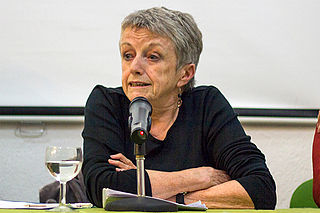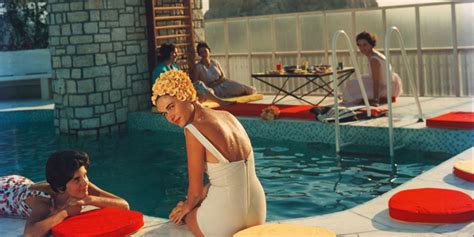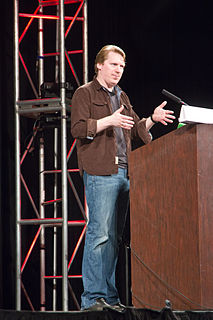A Quote by Allan Jacobs
If we can develop and design streets so that they are wonderful, fulfilling places to be - community-building places, attractive for all people - then we will have successfully designed about one-third of the city directly and will have had an immense impact on the rest.
Related Quotes
For me, places are articulations of 'natural' and social relations, relations that are not fully contained within the place itself. So, first, places are not closed or bounded - which, politically, lays the ground for critiques of exclusivity. Second, places are not 'given' - they are always in open-ended process. They are in that sense 'events'. Third, they and their identity will always be contested (we could almost talk about local-level struggles for hegemony).
Las Vegas suggests that the thirst for places, for cities and gardens and wilderness, is unslaked, that people will still seek out the experience of wandering about in the open air to examine the architecture, the spectacles, and the stuff for sale, will still hanker after surprises and strangers. That the city as a whole is one of the most pedestrian-unfriendly places in the world suggests something of the problems to be faced, but that its attraction is a pedestrian oasis suggests the possibility of recovering the spaces in which walking is viable.
I guess what I'm looking for here is empathy. So you [Nicholas Kristof] have traveled all around the world, famously to the worse places of the world. Darfur. Mogadishu, Ouagadougou. Probably those places much more than Modesto or Lewiston.I never read a column by you that suggest the people in those places, who support dictators oftentimes, are racists or bad people. You would never write that about a poor person in the third world but you are implying that about your fellow Americans.
Anyone who lives in a city will know the feeling of having been there too long. The gorge-vision that the streets imprint on us, the sense of blockage, the longing for surfaces other than glass, brick, concrete and tarmac....I have lived in Cambridge on and off for a decade, and I imagine I will continue to do so for years to come. And for as long as I stay here, I know I will have to also get to the wild places.
In any case, suffice it to say I enjoyed hearing about faraway places. I had stocked up a whole store of these places, like a bear getting ready for hibernation. I'd close my eyes, and streets would materialize, rows of houses take shape. I could hear people's voices, feel the gentle, steady rhythm of their lives, those people so distant, whom I'd probably never know.
When you as a designer design something that burdens a community with maintenance and old world technology, basically failed developed world technology, then you will crush that community way beyond bad design; you'll destroy the economics of that community, and often the community socially is broken.
When you as a designer design something that burdens a community with maintenance and old world technology, basically failed developed world technology then you will crush that community way beyond bad design; you'll destroy the economics of that community and often the community socially is broken.
Building places that are worth living in and worth caring about require a certain attention to detail, and of a particular kind of detail that we have forgotten how to design and assemble. And that involves the relationship of the buildings to each other, the relationship of the buildings to the public space, which in America, comes mostly in the form of the street. Because it's only the exceptional places in America that have the village square or the New England green. You know. The street is mostly the public realm of America. And we have to design these things so that they reward us.






























